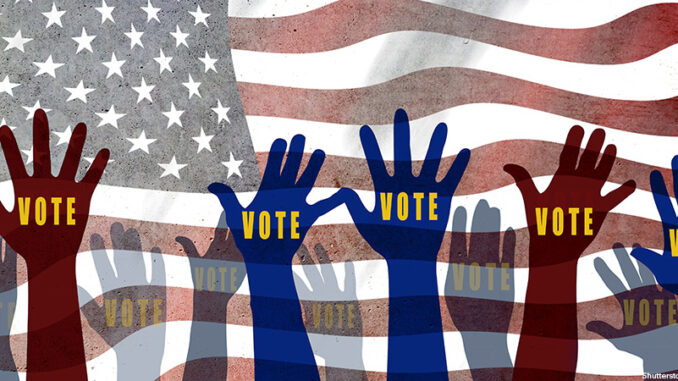
Despite the global coronavirus pandemic, primary elections are still going on here in the United States. However, over the past few months, since the outbreak began, many questions have been raised over how to hold the primaries in a way that protects peoples’ voting rights and their health and safety at the same time. This has led to some states postponing their primaries, others switching to a mail-in format, and still, others choosing to go ahead with an in-person voting day as planned. In the state of New York, the decision over how (or even whether) to hold a primary election has been especially dramatic. Here, btw takes a closer look.
No Election Needed?
While several states have postponed their primaries or changed their format, New York has taken a different and more dramatic approach: last month, they cancelled their primary outright. According to the New York State Board of Elections, this decision was made because Joe Biden is the only Democratic presidential candidate who still remains on the ballot, after all of the others have suspended their races. Holding an election when there is only one candidate on the ballot, during the coronavirus pandemic, seemed like an unnecessary risk to take for potential voters and election workers. (Elections for other statewide and congressional races will still take place via absentee ballot.)
Democrats React
Many Democrats, however, disagree with this decision. Canceling the primary outright means that millions of New Yorkers would lose their Constitutional right to vote. In response to the Board of Election’s decision, former Democratic presidential candidate Andrew Yang filed a lawsuit, claiming that it was illegal to remove his name from the primary ballot. Senator Bernie Sanders’ supporters were especially angry about not being allowed to vote for him, even though he suspended his campaign last month.
But why, if a candidate has dropped out of the race, might it be important to keep his or her name on the ballot? It’s because if a candidate still receives votes in the primary, he or she will keep receiving delegates. And the more delegates a candidate brings to the Democratic National Convention this summer, the more influence he or she will have within the party in terms of shaping policies and platforms.
What’s Happening Now?
Last Tuesday, a U.S. district court judge granted a preliminary injunction reinstating the primary. This means that the primary will go ahead on June 23 as planned. She said that canceling the election was unconstitutional, and ruled that all candidates should have the right to be on the ballot and have the opportunity to keep racking up delegates and gaining influence within the party.
But the New York State Board of Elections still disagrees. Apparently, a provision of New York state law says that a candidate can be removed from the ballot if he or she suspends their campaign. In fact, the Republican primary was already suspended earlier this year because there were no candidates other than Trump on the ballot. As a result, the New York Board of Elections is currently at work on an appeal.
